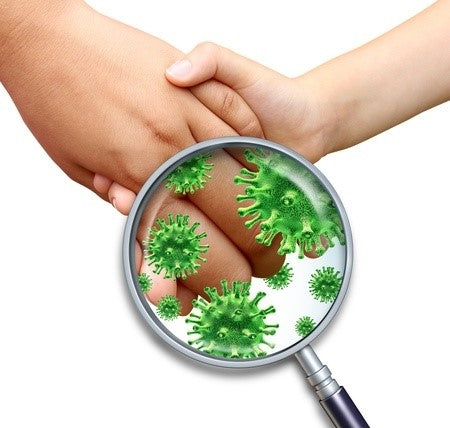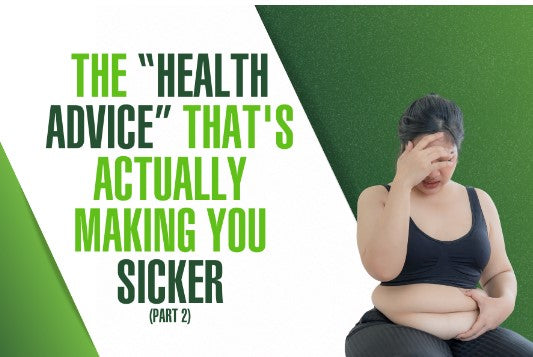
If you live in New York City like I do, you might have heard the buzz about a year ago about all of the billions of germs that live on the city’s subway lines.
Researchers found that it’s far dirtier than any other major subway system in the country, with at least 15,000 different types of life forms, including ones that lead to meningitis, urinary tract infections, and food poisoning.
Needless to say, citizens of the city went a little crazy when they heard about how dirty their main mode of transportation is.
And yet, the author of the study, Geneticist Chris Mason said about the findings, “I would advise any new parent to roll their child on the floor of the New York Subway.”
What? How can that be? Wouldn’t you want to protect your child from all of those dangerous germs?
Well, as it turns out, all of those germs can actually be protective for humans. I actually told my wife about this study one day when we were riding the subway with my son Brayden, and she said “Don’t even think about it!” She knew I was only kidding…partially.
Exposure to germs and infections, especially at a young age, actually seems to prime the immune system to be able to defeat threatening microbes in the future.
And if you think our bodies are pristine, bacteria-free zones that enter the world outside our homes only to be treated to a barrage of germs, think again.
Each of us has thousands of different species of bacteria inside and on our bodies. Estimates put the combined sum of all of those bacteria at a total of 3 to 5 pounds of our body weight!
“Think of yourself as a rabbit that gets to hop between two forests,” says Mason, referring to the home and outside world as both covered in germs and bacteria that are good for your immune system.
Exposure at an Early Age
You might have heard that kids who grow up on farms experience less asthma than kids who live in the city. And it’s not just because of air quality. On the contrary, the animals, insects, and dirt seem to affect whether or not certain good bacteria develops in the gut.
And that good bacteria can have a lifelong impact on your health, your immune system, and the way your digestive system functions.
Your Microbiome
Each human being carries around 10-100 trillion microbial cells, primarily contained within the gut, according to researchers. Those cells make up the microbiome, or community of microbes.

In fact, the microbiome is considered an organ by more and more of the medical community these days, but unlike other organs, it’s not solely in one location within the body.
It has a profound impact on our daily lives, including:
- how often we get sick, with up to 90% of all illnesses traced to the health of the microbiome
- what diseases we are predisposed to getting including autoimmune diseases, arthritis, heart disease, and cancer
- mood and anxiety, including depression
- helping to determine our unique DNA (There are 100 times more genes in the microbiome than in the genome!)
- brain health and longevity
- skin problems
- body weight
- the health of the liver
- fertility and sex hormones
- allergies and asthma
- metabolism
At the same time that the microbiome affects our lives, the way we live affects our delicate microbiome. This is especially true when it comes to the foods we eat, but many factors help to support a healthy gut.
And the truth is, the way most people live and eat here in the US does not make for a happy gut.
Let’s look at the top ways to keep your good bacteria in balance within your microbiome:
- Avoid antibiotics as much as possible.
While antibiotics wipe out the bad bacteria in your body, they also wipe out the good bacteria. What you’re left with is the equivalent of a war-torn country. It’s more susceptible to infection, diseases, and an overgrowth of bad bacteria as the gut repopulates.
One round of antibiotics will wipe out your microbiome for TWO YEARS!! Imagine you dropped an atomic bomb in a forest, and completely wiped out all vegetation, tress, animal life, and even bacteria. The same exact thing happens in your gut.
And to make matters worse, they create craters in your gut, allowing toxins, undigested food particles, yeast, mold, fungus, etc to leak FROM your gut INTO your bloodstream which is bad. This is known as leaky gut, and will make your blood more toxic and acidic.
Here’s one of my rules: Don’t take antibiotics unless you absolutely have to, and avoid food like meat and dairy products that are raised on antibiotics.
IF you have to take antibiotics, be sure to double up on your probiotics. In addition, take MOLECULAR HYDROGEN, what Paul Barattiero, founder of Synergy Sciences and Echo H2 Water, considers to be the body’s master antioxidant.
gHydrogen can actually build up your gut flora faster than the antibiotics can break it down.
Not to mention, it is anti-inflammatory, and produces gastric ghrelin in the gut, which can help improve dementia and cognitive function. This makes it great for anyone dealing with any inflammatory gut issue like IBS, Chrohn’s, Diverticulitis, and Celiacs.
Learn more about it here: https://www.synergyscience.com/#agent=GETOFFYOURACID
- Swap out foods that ravage a healthy gut.
Certain foods lead to greater levels of inflammation, which prevent the digestive tract from functioning optimally, and promote bad bacteria overgrowth. Steer clear of:
- Sugar – All sugars feed bad bacteria development!
- Refined carbs, processed foods, and products with gluten
- Canola, vegetable, and soybean oils
- Coffee and other caffeinated drinks
- Dairy products
- Meat and eggs
- Foods that contain trans fats like fried foods, margarine, and baked goods
- Foods produced using pesticides
- Eat more gut-friendly foods.
 Eating nutrient-rich foods is the most important thing you can do to support your microbiome because the food you consume delivers a constant, reinforcing blow or benefit to the bacteria that lines the digestive system.
Eating nutrient-rich foods is the most important thing you can do to support your microbiome because the food you consume delivers a constant, reinforcing blow or benefit to the bacteria that lines the digestive system.
Vegetables – dark, leafy greens, carrots, onions, broccoli, cauliflower, beets, squashes, and seaweed
Good fats – avocado, extra virgin olive oil, coconut oil, raw nut butters, wild-caught Pacific salmon
Plant-based proteins – tree nuts, seeds (chia, flax), beans, lentils, and quinoa
Herbs and spices – turmeric, ginger, basil, oregano, cilantro, thyme, and herbal tea
Whole alkaline fruit – lemons and limes in water, grapefruit, and pomegranate
You might notice that nearly all of these foods are alkaline as well. That’s no accident. Acidic foods destroy the microbiome, while alkaline foods nurture it.
With all of these foods, it’s best to buy organic because pesticides harm the microbiome as well.
- Get out in nature and let nature in.
 Open your windows and let fresh air inside on a regular basis when the weather permits. And enjoy hiking or gardening in the outdoors. Regularly exposing yourself and your family to the natural environment will boost your immune system.
Open your windows and let fresh air inside on a regular basis when the weather permits. And enjoy hiking or gardening in the outdoors. Regularly exposing yourself and your family to the natural environment will boost your immune system.
- Use natural soaps.
There’s no need to use antibacterial soap or hand sanitizer in your home. Research shows that regular exposure to antibacterial products makes you more susceptible to harmful bacteria because they destroy both good and bad bacteria that lives on the skin.
- Take a quality probiotic.
I recommend this a lot, and for good reason. But one thing I want to make clear is that you can’t substitute “probiotic foods” for a good probiotic supplement.
Yogurt, kombucha, and other foods that are sold as probiotics don’t provide the same amount or quality of good bacteria that a refrigerated probiotic supplement does. And they are often filled with sugar, YEAST, artificial sweeteners, and other junk that bad bacteria love.
- Supplement with Omega 3.
Again, you see this advice a lot here on my blog, and it’s because Omega 3 fatty acids do so much good for your entire body.
THEY ARE ESSENTIAL!!! This means you need them to survive, but your body doesn’t make them. You need to have Omega 3s in a 1:1 relation with Omega 6s, YET the average American is 1:11, and many 1:25, and even 1:50!
This means you need to up the 3s, and lower the 6s (soybean oil, safflower oil, sunflower oil, trans fats, cooked oils, flax oil, store bought salad dressings and pasta sauces, etc).
And the way they do that is by preventing inflammation, a hallmark of a healthy microbiome. Make sure you take a good quality supplement that uses fish oil.
- Supplement your greens.

It takes 60 servings of spinach today to equal the mineral content in 1 serving of spinach in 1948 because of soil depletion and pesticide use. So eating lots of leafy greens unfortunately isn’t enough.
This is why it’s helpful to start the day off with Alkamind Daily Greens, which will deliver a mega-dose of the dark greens your body wants to help prevent inflammation and keep your microbiome in balance.
 Skip to content
Skip to content





